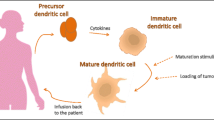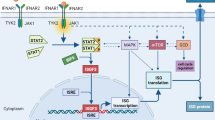Summary
It was shown that sublethal (500 rads), whole-body γ-irradiation of mice bearing an established i.d. immunogenic tumor can result, after several days delay, in complete tumor regression and long-term survival, but only if radiation is given after the tumor is established and growing progressively. Exposing mice to the same dose of radiation several hours after tumor cells were implanted resulted, in contrast, in enhanced growth of the primary tumor and in earlier death from systemic disease. Irradiation-induced tumor regression failed to occur in mice that were incapable of generating antitumor immunity, because of having been made T cell deficient by thymectomy and irradiation. Again, irradiation-induced tumor regression could be blocked by infusion of spleen cells from donor mice bearing a well-established tumor. These and previously published results support the view that sublethal, whole-body ionizing irradiation causes tumor regression by preferentially destroying radiosensitive suppressor T cells, thereby enabling the host to generate a therapeutic level of concomitant immunity. It is suggested that the preferential destruction of suppressor cells by irradiation depends on the acquisition, during immunologic induction, of radioresistance by antigen-activated effector T cells, and that this is the reason irradiation causes regression only of established tumors. Not all tumors tested were immunogenic enough to undergo regression in response to γ-irradiation.
Similar content being viewed by others
References
Anderson RE, Warner NL (1976) Ionizing radiation and the immune response. Adv Immunol 24:215
DiGiacomo A, North RJ (1987) Subtherapeutic numbers of tumour-sensitized, L3T4+, Lyl+2− T cells are needed for endotoxin to cause regression of an established immunogenic tumour. Immunology 60:367
Dye ES (1986) The antimetastatic function of concomitant antitumor immunity. II. Evidence that the generation of Lyl+2+ effector T cells temporally causes the destruction of already disseminated tumor cells. J Immunol 136:1510
Dye ES, North RJ (1981) T cell-mediated immunosuppression as an obstacle to adoptive immunotherapy to the P815 mastocytoma and its metastases. J Exp Med 154:1033
Enker WE, Jacobitz JL (1980) In vivo splenic irradiation eradicates suppressor T-cells causing the regression and inhibition of established tumor. Int J Cancer 25:819
Gershon RK, Carter RL, Kondo K (1968) Immunologic defenses against metastases: impairement by excision of an allotransplanted lymphoma. Science 159:646
Gorelick E, Segal S, Feldman M (1978) Growth of a local tumor exerts a specific inhibitory effect on progression of an allotransplanted lymphoma. Int J Cancer 21:617
Hellstrom KE, Hellstrom I, Kant JA, Tamerius JD (1978) Regression and inhibition of sarcoma growth by interference with a radiosensitive T-cell population. J Exp Med 148:799
Johnson TR, North RJ (1987) Frequency analysis of augmented CTL production associated with Corynebacterium parvum-induced tumour regression. Immunology 60:361
Lowenthal JW, Harris AW (1985) Activation of mouse lymphocytes inhibits induction of rapid cell death by X-irradiation. J Immunol 135:1119
North RJ (1985) Down-regulation of the antitumor immune response. Adv Cancer Res 45:1
North RJ (1986) Radiation-induced, immunologically mediated regression of an established tumor as an example of successful therapeutic immunomanipulation. J Exp Med 164:1652
North RJ, Bursuker I (1984) The generation and decay of the immune response to a progressive fibrosarcoma. I. Lyl+2− suppressor T-cells down-regulate the generation of Lyl−2+ effector cells. J Exp Med 159:129
North RJ, Dye ES (1985) Lyl+2− suppressor T cells down-regulate the generation of Lyl−2+ effector T cells during progressive growth of the P815 mastocytoma. Immunology 54:47
Author information
Authors and Affiliations
Additional information
This study was supported by Grants CA-16642 and CA-27794 from the National Cancer Institute, Grant RR-05705 from the Division of Research Resources, NIH; and a Grant-in-aid from RJR Nabisco
Rights and permissions
About this article
Cite this article
Awwad, M., North, R.J. Sublethal, whole-body ionizing irradiation can be tumor promotive or tumor destructive depending on the stage of development of underlying antitumor immunity. Cancer Immunol Immunother 26, 55–60 (1988). https://doi.org/10.1007/BF00199848
Received:
Accepted:
Issue Date:
DOI: https://doi.org/10.1007/BF00199848




